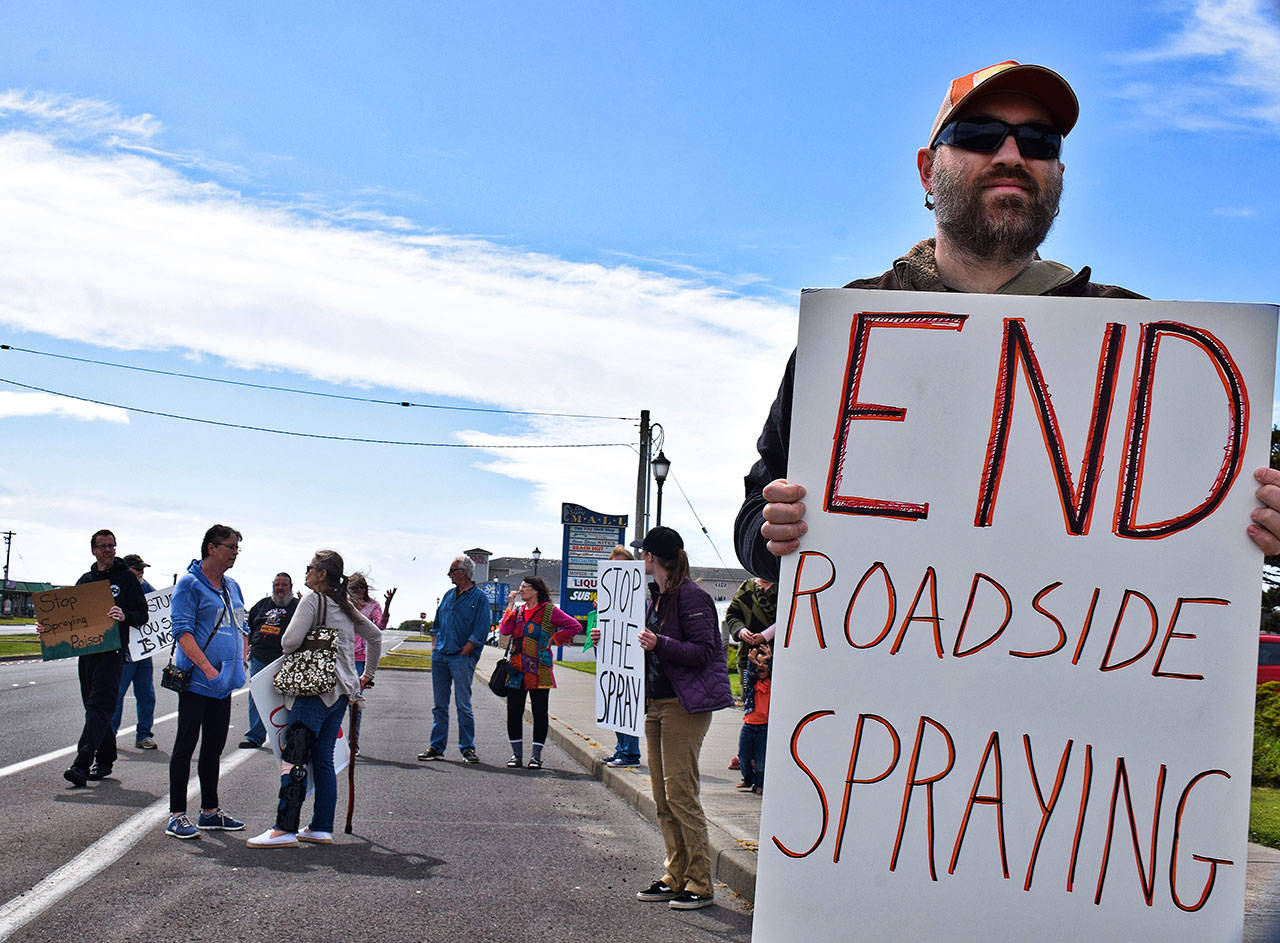By Scott D. Johnston
For the GH News Group
The annual roadside spraying of herbicide throughout Ocean Shores was halted last Tuesday when officials of Woodland Resources Services Inc. told City Public Works Director Nick Bird that they were stopping the project due to “concerns for the driver’s safety.”
By Wednesday morning, there were reports that the spraying truck had been closely followed, video recorded and photographed by people in multiple vehicles; the driver had engaged in conversations that ran from questions to confrontations; and images of the truck and driver were posted on some local Facebook groups.
Bird said Woodland did not think a police escort for their truck and driver was appropriate, but would not finish the $17,000 job, which was expected to take three to five days, depending on weather. Bird declined to discuss the alleged behavior that apparently brought about the project’s early end.
He said it was only 25% complete when halted, and the chances of completing the job on the remainder of the approximately 240 miles of gravel shoulder next to the asphalt pavement on 120 miles of city streets were between “slim and none.”
Ocean Shores Mayor Crystal Dingler said, “It’s my understanding they felt it was a risk to them to continue, so they finished off their tank on the second day, stopped and left.”
Responding to alleged harassment of the driver, she said, “I think the behavior was inappropriate. Anytime you’re trying to bully somebody, which is essentially what they were doing — following way too close, there’s some intimidation factor there — there’s really something wrong with that kind of behavior. That’s not what Ocean Shores is about.”
The mayor said, “He brought his wife with him, they were going to have a nice couple of days while he was here.” But when he saw Facebook posts of his truck and himself, “they felt uncomfortable going out. That’s really sad. That’s not who we are.”
The North Coast News talked to a few people who said they had engaged the driver in polite, courteous conversations, some to find out when the truck would be on their specific streets. Others were concerned about possible spraying of the beach approach roads, which was not part of the plan, and would fall under much more stringent state-level regulation.
The roadside spraying became something of a “pop-up” controversy when Ocean Shores residents Kathy Klee and Loren Taylor got together and put a petition on Facebook on May 10, before the May 13 City Council meeting, asking that the city not spray as scheduled beginning May 20 and instead research other weed control methods. The online petition had nearly 400 signatures by the time of the council meeting, and the total was nearing 1,200 by late last week.
Klee explained her position online and as one of a dozen who spoke during the public comments portion of the Council meeting. She believes one of her dogs died by being poisoned by herbicides, and wanted to convince the council to halt the scheduled spraying and seek safer alternatives.
Prior to the public comment portion of the meeting, Council member Susan Conniry offered a motion to put the topic on that night’s agenda. It failed to pass on a 3-3 vote with Conniry, Kathryn Sprigg and Bob Peterson voting in favor, Jon Martin, Eric Noble and Steve Ensley opposing, and Lisa Griebel absent.
Bird explained that the city adopted an opt-out program a year ago under which individual property owners can agree to maintain the roadside areas of their property, they will receive “Owner Will Maintain” signs and their roadsides would not be sprayed with herbicide.
Bird said of 12,000 plots in the city, only about 150 have been opted out — about 1.25%. He said actual applications were received from 133 property owners, some covering more than one plot. Of those, 33 came in this month, prior to the scheduled start of spraying.
Klee said she did not opt out because spraying the rest of the streets in her neighborhood still posed a danger to dogs being walked and residents in general. She said she feels the opt-out program is “just a band-aid” because requiring residents to mow up to the edge of the asphalt does not effectively address the concern of the roots of weeds spreading under the asphalt, eventually causing it to break up.
Klee said delaying the spraying and having a discussion of alternatives was “all we wanted in the first place” — but, referring to the alleged harassment, “we didn’t want to do it this way.”
Woodland officials did not respond to requests for comment.


